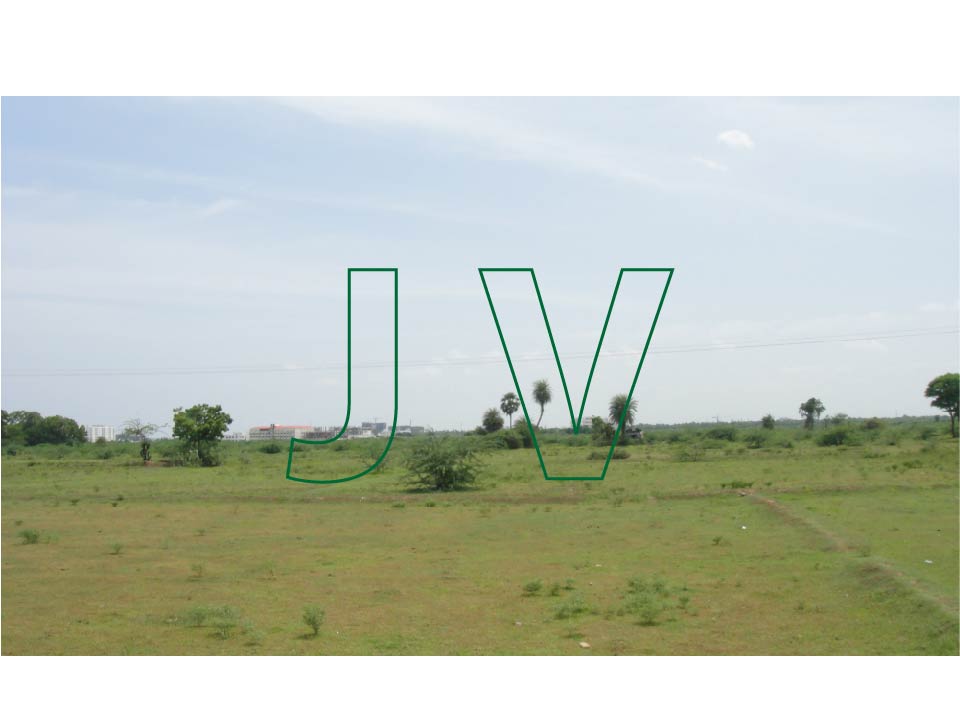Last Updated on 2 years by ChennaiRealties
Is Joint Development Agreement(JDA) beneficial to the Land Owners?
Joint Development Agreement (JDA) is an Agreement entered into between the Promoter/Builder and a Landowner. It’s for putting up a Residential or Commercial Building Complex. The land can be a vacant one, or one with a building, or one with a building complex. And the Land Owner may be a single person or a group of persons as in the case of the Flat Owners of an older complex, and so on.
Who normally opt for JDA
Owners of Land with a Building, Buildings, or Apartments
Often, the old Apartment Complexes would not have utilised the permissible FSI. And, many owners may not have the liquid funds to promote any project on their own. In such cases JDA is the ideal way out to exploit the available resource, the land.
Vacant Land Owners
In a sluggish market like the present one, JDA shows an alternative way. When a landowner finds it difficult to find a Buyer, JDA provides an alternative. This way, the Owner may get some money for their immediate need by way of Advance. Also, by this method, the owner can hope to get more from their property. JDA is not only for those who are in immediate need of funds. With JDA landowners who want to make more money are also offer their land for Joint Ventures.
Builders Prefer JDA
Most of the Builders now prefer to Promote their projects through this JDA route. Given the land cost today, many builders prefer this method. In this way, more funds will be available for them to meet the construction expenses. Also, they can get prime land for promoting their prestigious projects. The Promoters expect the land to be in a prime area for JDA. Many old Housing Board Complexes meet these criteria. Anna Nagar, Thiruvanmiyur etc. have seen such redevelopments. New Modern Complexes arose in those areas by redeveloping the old ones. In the Old Housing Board complexes, the FSI utilised is very low. Vast open spaces available without any construction. This gives much scope for exploiting the land further. It is a clear example of win-win situation for both the builder as well as the land/flat owners. Proportionate to their UDS, the landowners will get compensation. Most of the areas where these Complexes are have metamorphosed into busy areas over a period.
Modus Operandi
For Joint Development, the promoter enters into an agreement with the Land owner. He pays an advance amount and enters into an agreement. He then starts developing the land for construction. It may be an apartment complex or a commercial complex. The landowner gives the General Power of Attorney to the builder for all permits. He applies for Plan permit and related permits. The clauses in the POA and the Agreement are to be carefully drafted. This is so as not to give any room for confusion during the progress of the project. The agreement provides for compensation to the landowner. He or she gets cash component and a few flats or floor areas in the completed complex. The Floor floor area he gets, he can choose to keep it for himself, sell it himself, or sell it through the promoter. The Supplementary Agreements should state all the details of this sharing. Make clear all these issues before the project commences. The cost of Land in a locality largely determines the sharing ratio. Also are the Construction cost, the Cost of Development of the land and so on. Sometimes there may be dwelling units in the land or plot where the project is to come up. In such situations, the occupants have to stay in rented premises till the project is complete. The Builder has to meet those expenses. In short, the landowner brings in the land only, and the builder invests the rest. The understanding between the two must remain intact until the project is complete. The JDA should include complete details. Size, material used, floor area, and amenities provided should be in the agreement. Also, the JDA should give details of the profit-sharing ratio. Details of the payment schedule, the completion schedule, the plan details. Normally, the profit sharing ratio is 40:60 between landowner and builder. Yet, it may vary according to location.

Leave a Reply